Personal Independence Payment (PIP) provides vital financial support to individuals in the UK living with long-term illnesses or disabilities. But for many recipients, there’s still uncertainty surrounding what other benefits may come with it.
One of the most common questions asked is whether receiving PIP means you’re automatically entitled to free prescriptions. This article unpacks the relationship between PIP and NHS prescription exemptions in England, offering clarity and guidance to those navigating the system.
Who Can Claim PIP?
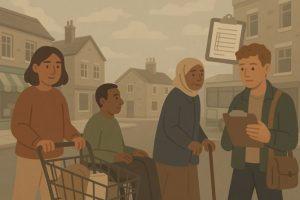
PIP, or Personal Independence Payment, is a non-means-tested benefit designed to help with the extra costs associated with living with a disability or chronic health condition. Administered by the Department for Work and Pensions (DWP), it’s available to individuals aged 16 and over who haven’t yet reached State Pension age.
Eligibility is based on how your condition affects your daily living and mobility, not on the condition itself. It’s split into two components daily living and mobility each of which can be paid at a standard or enhanced rate. Whether someone is approved for PIP depends on a detailed assessment that looks at how much assistance they require with routine tasks and movement.
Does PIP Automatically Qualify You for Free Prescriptions?
Despite its focus on supporting those with health issues, receiving PIP does not automatically entitle someone to free prescriptions at least not in England. This is a common misunderstanding. While PIP recognises that someone has a serious health-related need, NHS prescription exemptions are based on different criteria entirely.
In other parts of the UK, such as Scotland, Wales, and Northern Ireland, all residents receive free prescriptions regardless of income or benefits. England, however, charges £9.90 per item unless an individual meets specific exemption requirements. So, while being on PIP alone doesn’t guarantee exemption, it could be part of a broader set of circumstances that lead to free prescriptions through other qualifying routes.
What Are the Criteria for Getting Free NHS Prescriptions?
In England, exemption from paying for prescriptions is granted under several conditions, and being on PIP isn’t one of them by default. The NHS provides free prescriptions to people under 16, those aged 16 to 18 who are in full-time education, and individuals aged 60 and over.
Exemptions are also available for those with certain medical conditions, those who are pregnant or have recently given birth, and individuals receiving income-based benefits.
To be clear, some people receiving PIP may also receive benefits like Universal Credit or Employment and Support Allowance (ESA), which can qualify them for free prescriptions if their income is below a certain threshold. So, it’s often the combination of PIP with another qualifying benefit not PIP on its own that enables someone to receive prescriptions at no cost.
Can You Get an NHS Exemption Certificate with PIP?
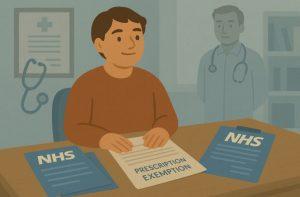
An NHS exemption certificate is required to confirm your eligibility for free prescriptions under certain criteria, but unfortunately, PIP alone does not make you eligible for such a certificate. These certificates are issued to individuals with specific long-term medical conditions, new mothers, pregnant women, or people with a low income.
For example, a person with diabetes or epilepsy might receive a medical exemption certificate, while someone on a tight budget could be assessed through the NHS Low Income Scheme. In both cases, the application process involves providing personal and financial details and, where applicable, medical evidence signed by a GP.
If you believe you qualify for one of these certificates, you should speak to your GP, local pharmacist, or visit the NHS Business Services Authority website for guidance on applying.
What Other Health Costs Are Covered If You’re on PIP?
While free prescriptions aren’t guaranteed, PIP recipients might still be able to access support for other health-related costs, depending on their circumstances. For instance, someone receiving PIP who is also on a low income might be eligible for free dental care, eye tests, glasses, or help with travel costs for NHS appointments through the Healthcare Travel Costs Scheme.
The NHS Low Income Scheme is particularly helpful in this regard. It assesses your income, savings, and essential outgoings to determine whether you qualify for help with any of these costs. Many PIP recipients who struggle financially find this scheme to be an essential resource for reducing health expenses.
How Can You Check If You’re Eligible for Help with Health Costs?
To determine what help you’re entitled to, the NHS offers an online eligibility checker. It’s a straightforward tool that asks a few questions about your age, income, benefits, and medical conditions. After answering these, it provides a summary of what assistance you may be eligible for, including free prescriptions.
Alternatively, if you’re not comfortable using the online tool, you can ask for advice from a pharmacist or a member of staff at your GP practice. NHS advisors are also available to guide you through the process over the phone.
It’s worth checking even if you think you don’t qualify changes in income or benefit status can affect your eligibility.
What Should You Do If You’re Not Eligible for Free Prescriptions?
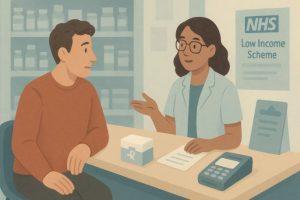
If you find that you’re not entitled to free prescriptions, there are still ways to manage the cost, especially if you need medication regularly. One of the most practical solutions is to purchase a Prescription Prepayment Certificate (PPC).
A PPC allows you to pay a fixed fee for unlimited prescriptions over a set period. This can significantly reduce your annual spending on medication. Many people on PIP who take multiple prescriptions a month choose this option to keep costs predictable and manageable.
In addition to the PPC, you might also be able to find support through local charities, social care organisations, or condition-specific support groups who offer funding or assistance for those in financial hardship.
How Does PIP Compare to Other Benefits Regarding Health Costs?
When comparing PIP to other benefits, it becomes clear that while PIP provides substantial support for living with a disability, it doesn’t directly help with medical expenses like prescriptions. In contrast, income-based benefits such as Universal Credit and income-based ESA are more likely to come with automatic prescription exemptions if certain income conditions are met.
What sets PIP apart is that it’s not means-tested. This means someone with a disability might receive PIP regardless of how much they earn or what savings they have. However, this also means it isn’t connected to the NHS’s income-related systems for free medical services, leaving recipients to seek additional support elsewhere if needed.
What Are the Common Misconceptions About PIP and Free Prescriptions?
A widespread belief is that anyone receiving PIP is automatically exempt from paying for prescriptions. While it seems logical after all, PIP supports those with health challenges the NHS prescription system in England simply doesn’t work that way. Another common myth is that all government benefits carry the same healthcare perks, but in reality, each benefit comes with its own set of criteria.
There’s also confusion caused by regional differences. For instance, someone moving from Wales to England might be shocked to learn they now need to pay for prescriptions. It’s vital to stay informed and rely on trusted sources like the NHS and Citizens Advice to understand your rights.
What Should You Know Before Applying for PIP or an NHS Certificate?
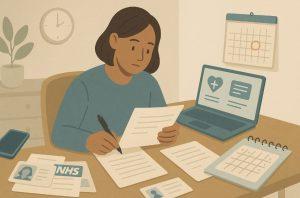
Before applying for either PIP or an NHS exemption certificate, it’s crucial to gather the right documents and understand the requirements. For PIP, this means medical reports, care assessments, and personal statements that explain how your condition affects daily life. For NHS certificates, you may need financial records or confirmation of diagnosis from a medical professional.
Delays can happen, especially when information isn’t submitted properly or when different departments, such as the DWP and NHS, don’t communicate effectively. Being thorough and proactive can make a significant difference in how smoothly the process runs.
Conclusion
In conclusion, while PIP provides essential support for people living with disabilities and long-term health conditions, it does not in itself entitle someone in England to free prescriptions. That said, many individuals receiving PIP may qualify through other means particularly if they also receive income-based benefits or have a recognised medical condition.
The key is to explore all available options. Whether through the NHS Low Income Scheme, a Medical Exemption Certificate, or a Prescription Prepayment Certificate, there are ways to reduce or eliminate prescription costs. With the right knowledge and tools, no one on PIP should feel left without options when it comes to managing their healthcare needs.
FAQs About Free Prescriptions and PIP
Can PIP recipients get free prescriptions if they also get other benefits?
Yes, if someone on PIP also receives a qualifying income-based benefit such as Universal Credit or ESA, they may be eligible.
Is there a direct link between PIP and NHS free prescriptions?
No, PIP alone doesn’t qualify someone for free prescriptions in England. Other factors must be considered.
Does a disability diagnosis automatically mean free prescriptions?
Only certain conditions qualify for a Medical Exemption Certificate. Others may not lead to automatic exemption.
How can someone on PIP apply for help with prescription costs?
They can apply through the NHS Low Income Scheme or purchase a Prescription Prepayment Certificate.
Can I still get support if I live in London and pay for prescriptions?
Yes, Londoners on PIP can access the same support schemes available across England.
What happens if my exemption certificate expires?
You must renew it promptly; otherwise, you risk being fined for claiming free prescriptions you’re no longer eligible for.
Where can I get advice about NHS exemptions?
Your GP, pharmacist, or NHS Business Services Authority can offer tailored advice.








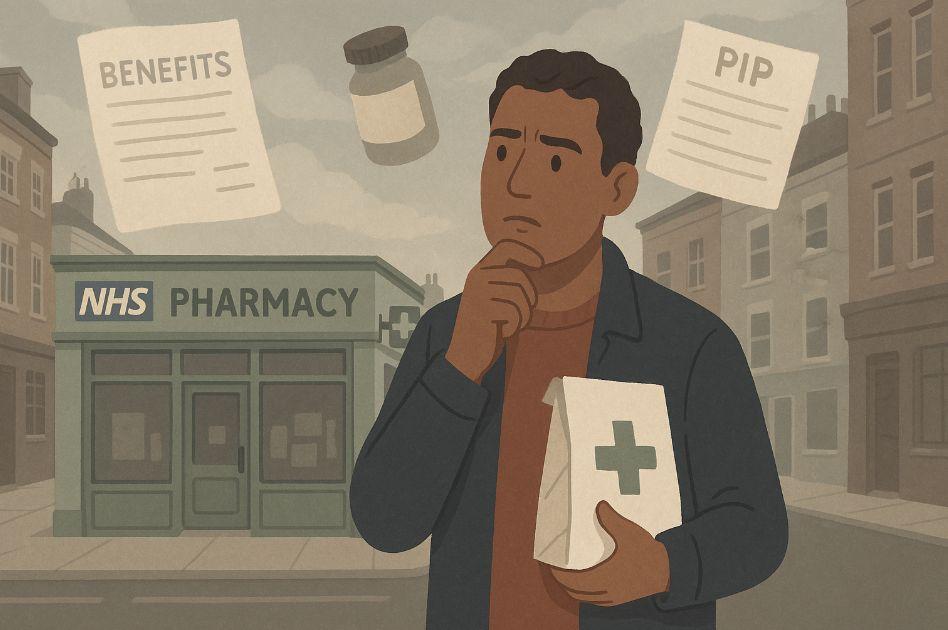
Leave feedback about this